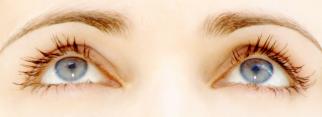Freedom from glasses

Generally, LASIK is performed if you are nearsighted, farsighted or have an astigmatism. You need to have a stable vision prescription that isn’t rapidly changing and in good overall eye health. You should be between the ages of 21-60.Women who are pregnant should typically wait for a few months after delivery or nursing before undergoing LASIK.
Once Dr. Epitropoulos finds that you are a good candidate for laser vision correction, she will make sure that you understand all the facts about LASIK and that your expectations are realistic. It will then be up to you to make the ultimate decision to go ahead with the procedure. You are the only person who knows the value that can be placed on reducing your dependence on glasses and contact lenses.
Laser vision correction takes only about 15 minutes to complete. First, your prescription is entered into the computer that controls the laser. After the eye is prepared and numbed with anesthetic drops, Dr. Epitropoulos will create a flap in the cornea using an extraordinarily precise instrument called a microkeratome. You may feel some pressure during this portion of the procedure. The laser is then positioned over the eye, where it will emit small, controlled bursts of energy. Depending on the desired outcome of the surgery, small amounts of corneal tissue will be removed in order to change the focus of the eye. For the duration of the laser's operation, Dr. Epitropoulos will closely monitor the eye through a surgical microscope; she can pause the process at any time. Once the desired prescription has been achieved, the flap is returned to its original position. The flap will self-adhere and does not typically require sutures. The major advantages of corneal flap creation are that healing is faster and that discomfort is greatly reduced.

If you are interested in seeing your best without glasses, please contact Dr Alice Epitropoulos and we will evaluate the appropriateness of this technology for you.
The postoperative period after LASIK is just as, if not more, important to the success of the procedure. The best way to help the healing process immediately after LASIK is to go directly home and sleep (or at least keep your eyes closed) for about four hours. Your eyelids will help the corneal flap to continue the bonding process. After this time period, it is essential that you keep your eyes lubricated with the drops provided by Dr. Epitropoulos and follow all of her postoperative instructions.
Most people find that they can resume normal activities shortly after undergoing LASIK and return to work within a couple of days. Dr. Epitropoulos will make specific recommendations to you during your follow-up exams.
Call Refractive Line (Lasik, PRK) 614.887.2020
We will discuss the benefits, risks and costs. As always, Dr Epitropoulos strives to provide the latest proven solutions to protect and restore vision for you and your loved ones.
Dr. Epitropoulos has been recognized as one of America's Best Doctors.
Dr. Epitropoulos has been voted as one of the top refractive surgeons by fellow physicians in the Central Ohio.





